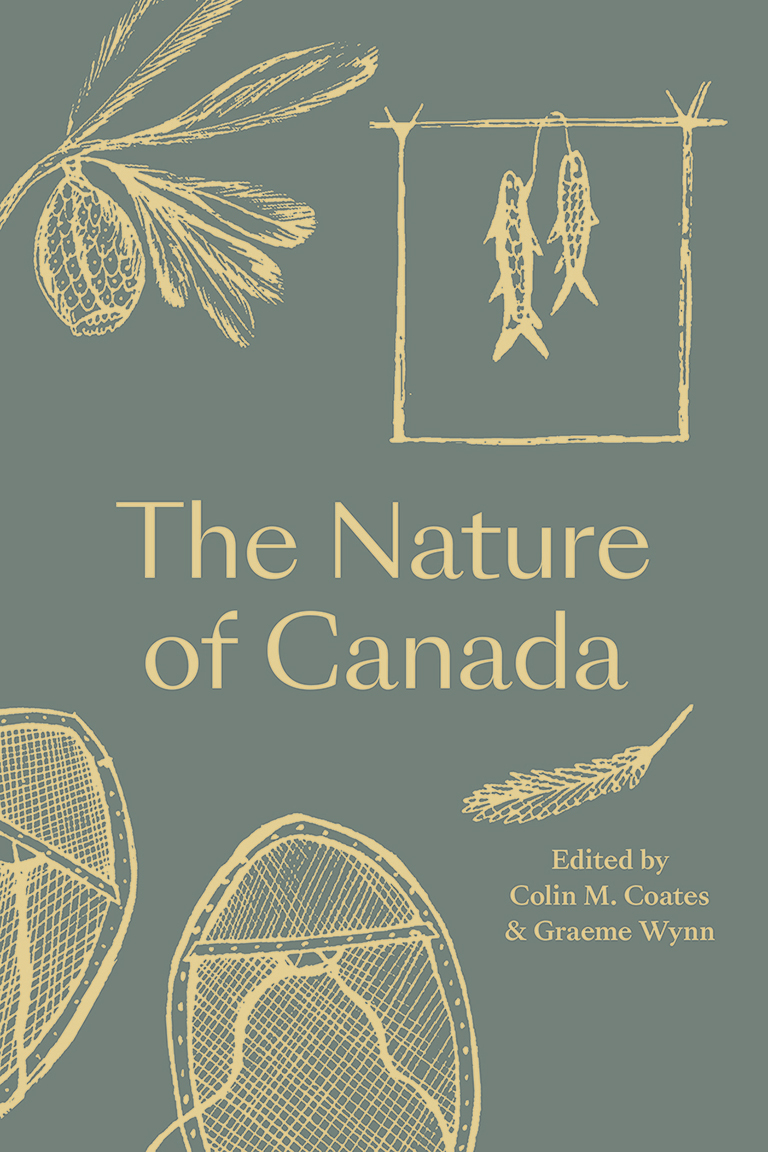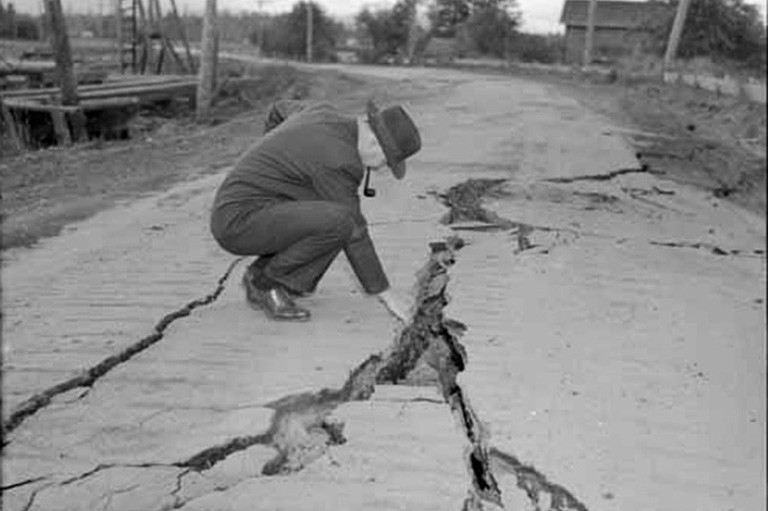The Nature of Canada

The Nature of Canada
edited by Colin M. Coates and Graeme Wynn
On Point Press
384 pages, $29.95
A sea of basketball fans chanting “We the North!” Activist Greta Thunberg marching with a crowd half a million strong down the streets of Montreal. Instagram devotees trampling an Ontario sunflower farm in search of the perfect selfie. Indigenous protesters, arm in arm, standing up against the Kinder Morgan Trans Mountain Pipeline.
We all relate to the natural world that surrounds us in different ways. Stories like these dominate our news cycle. We stand with hands over hearts and sing, “the True North, strong and free.” Our environment is a part of us, our way of life — our national identity itself. In The Nature of Canada, editors Colin M. Coates and Graeme Wynn examine this core relationship between humans and nature. Each essay in this collection carefully considers a different angle, a new complexity: How has this relationship changed over time — and to what end? They suggest that, if we slow down and look back, perhaps we may discover a way to move forward. In the editors’ words, “The futures of Canada, of Canadians, of humankind, and of the only world we have are at stake.”
Dwelling on the state of our natural environment can be overwhelming. Concerned citizens across the world are being diagnosed with “eco-anxiety,” a mental disorder fuelled by fears over the consequences of pollution and climate change. In some ways, this feeling is nothing new. Do we dominate nature, or does it dominate us?
Different writers touch on these emotions in various historic contexts. In “Nature and Nation,” Wynn explores the fear and fascination held by early European settlers towards the “new” world. Farmers in Upper Canada, as he notes, struggled to “vanquish their vegetative enemy,” attempting to adapt an unruly environment to their agricultural purposes. Meanwhile, in her essay “The Wealth of Wilderness,” Claire E. Campbell asks, is the Canadian wilderness to be enjoyed or survived?
This leads to a common thread that is woven through many essays: the opposing forces of ecology and economics. We witness the “inexhaustible manna” of cod, the intoxicating allure of the beaver pelt, the transformative rise of agrarianism and mining. While I wondered if the discussion would be oversimplified or morally tinged, reducing choices to either good or bad, the scholars contributing to this collection approach the commodification of the natural world with the complexity it deserves. They take the time to demonstrate the perspectives of human actors in their unique contexts, but, importantly, they don’t shy away from the consequences.
Where The Nature of Canada especially shines is in its spotlighting of overlooked voices. One of the most evocative discussions found in these pages is Wynn’s explication of Bonnie Devine’s art installation Battle for the Woodlands — an Indigenous renegotiation and retelling of a famous colonial map of Canada. The essay “Listening for Different Voices,” by Julie Cruikshank, reveals the Indigenous world view of there being a connection between all living things. Even the most enormous, seemingly immovable features of the earth — like glaciers — are given agency in Indigenous traditions, including the ability to respond to humans.
At times, these scholars allow nature to speak for itself, allowing the evidence of the earth to state its case. Pathogens we cannot see — from cholera to SARS — have had dramatic effects on human history. The movements of the earth’s crust millennia ago reverberate into today’s landscape. Invasive species and evolutionary micro-adaptations enter the scene, all working to circumvent human intentions. We are reminded that nature operates on scales we often do not consider, from the local to the global. It brings us back to the intention of this collection: This is a history of a relationship.
The Nature of Canada is a critical and timely book. Now, more than ever, we must pay attention. In April 2019, Environment and Climate Change Canada released a report that declared, in no uncertain terms, that Canada’s future is in environmental crisis. We are warming at twice the global rate. We need writing like this — engaged and galvanizing but not alarmist — that breaks down the boundary between scholars and the public, showing us a broad vision of Canada that we all can understand and fight for.
For the climate-concerned, sustainability minded citizen, this book is a clear must-have — but, dare I say, it should also be required reading in our classrooms. The Nature of Canada will equip the next generation of Canadians, providing hope that they might avoid the mistakes of our shared past.

Our online store carries a variety of popular gifts for the history lover or Canadiana enthusiast in your life, including silk ties, dress socks, warm mitts and more!
Themes associated with this article
Advertisement






